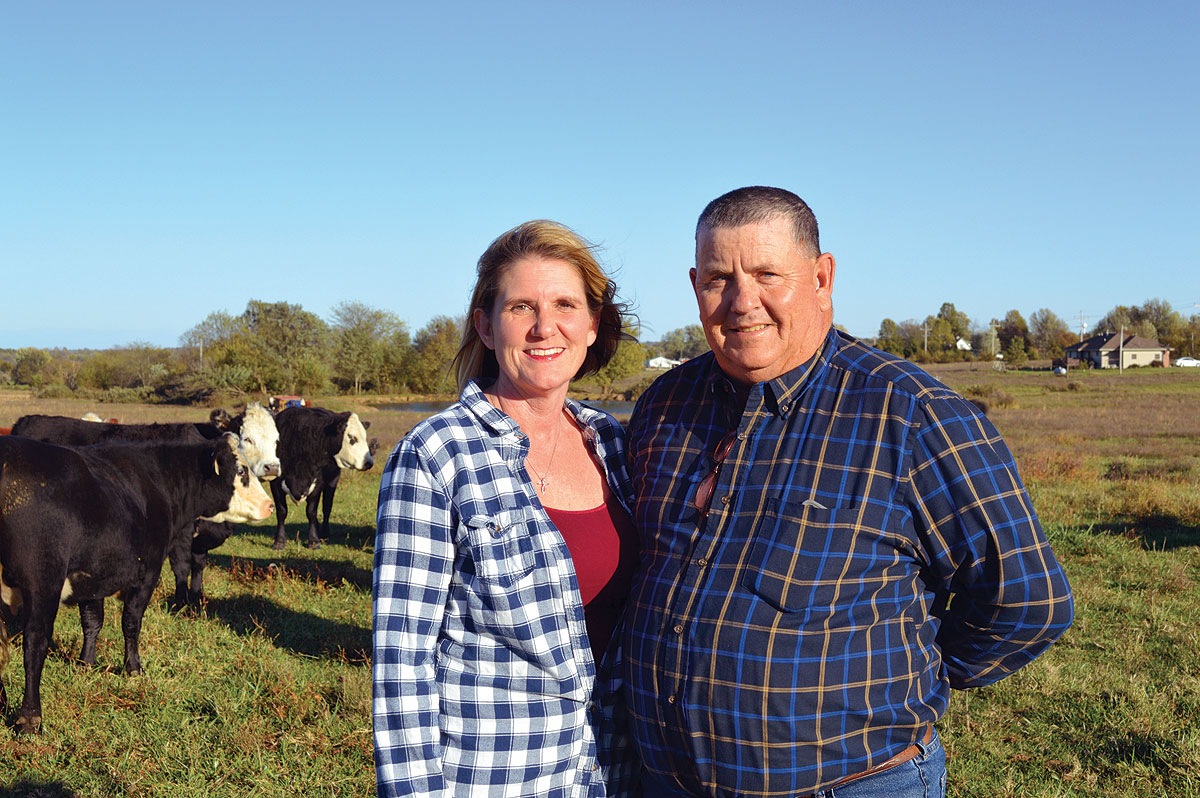
National FFA award winner Hannah Strain works to help her family produce and market the best forage possible
“We care about our farm and we care about the land. We want to do things in the most efficient way possible,” Hannah Strain said when asked about the planning and care which goes behind pasture management techniques for her family’s Red Angus farm.
Hannah’s skill in pasture conservation has paid off in more ways than one. The 18-year-old University of Missouri freshman was recently awarded the National FFA Forage Production Proficiency.
Majoring in agricultural education and leadership has helped broaden Hannah’s awareness of the importance of educating the public about the role farming plays in the well being of the American economy, and society as a whole. She would like to work in the communication arena as it pertains to agriculture.
“I love to visit with people, and I love to educate people about farming and agriculture,” she said.
Hannah stressed that being able to monitor pasture land, as well as soil conditions; helps ensure the best yield for their herd.
“We really focus on using proper management techniques so that we aren’t hurting the environment in any way. We believe it’s important for us to be good stewards of the land,” Hannah said. “We take extensive soil sampling, so we know exactly what needs to be put back into the ground.” Nitrogen, potassium and phosphorous are added in the form of fertilizer, as needed.
The younger of two children, Hannah grew up around farming, and was exposed to FFA as a child, accompanying her father in his work as an FFA advisor.
Sister Taylor shares Hannah’s love of agriculture, and is herself a recent graduate of University of Missouri. Hannah proudly related that her older sister recently started a FFA chapter in Newburg, Mo.
The Strain farm is located on a parcel of land that includes the family’s home in Rolla, Mo. It was purchased 20 years ago by Tom and Cindy Strain. The farm operates under the name Elk Prairie Farms, LLC, and consists of 600 acres. Another 100 acres is leased for hay production. Hannah has worked her way up to a paying position on the farm. The pride she feels for the part she plays in the farm’s success is evident.
Her position on the farm includes forage assessment, evaluating seasonal growth of warm and cool season grasses, soil assessment, all aspects of hay production and the marketing of the farm’s forage product.
Hannah also works with customers across the state and takes pride in producing a quality product. She also maintains a positive working relationship with landowners who they lease ground from as well as local ag businesses who help carry out the farm’s operations.
Red Angus cattle are also an important part of the family operation. The Red Angu, Hannah explained, was chosen for their docility and the ability of the heifers to produce abundant milk for the calves.
The exact number of heifers on the property can fluctuate, but there are usually between 170 to 200 females and calves, in addition to three Red Angus bulls.
“Our bulls are docile, good guys. Mostly, they hang around, and do their own thing,” Hannah laughed.
Hannah’s father Tom enjoys the commercial side of their cattle operation.
“My dad likes to go into our calf crop when they are about 400 to 500 pounds, and pick the ones he thinks look the best, pull out about five bulls and grow them to finish. If there are people in our community that are looking for a Red Angus based commercial bull, he’ll sell those. He likes to watch them go from point A to point B, and he has an eye for picking them out,” Hannah said.
Fescue hay is the primary hay used to feed the Strain herd. Orchardgrass,Timothy, red top and white clover are also mixed in with the fescue, as feeding too much fescue could be toxic to the herd.
“Fescue is an excellent grass because it grows so vigorously, and is so strong,” Hannah explained. “It’s important to have those different plants in there as part of their diet, so they get all the nutrients that they need.”
Pasture grass generally consists of the same mixture.
In order to not over graze the land, Hannah practices the take half, leave half method of cattle rotation. When the grass has been eaten to half of its original height, the cowherd are moved to another area.
Hannah enjoys her time at the Columbia, Mo., college campus, but tries to come home as often as possible, so she can help her sister and father with the farm.
As someone who loves to learn, Hannah likes all her classes, but her favorite class have been business. Hannah believes the time spent learning about resumes and Linked in will be beneficial in the future.
When she has time, Hannah enjoys fishing, and uses the pond on the farm. She likes to travel, and has taken a lot of trips with FFA.
“It’s been really cool to travel around the state of Missouri and see the different farms, and the way that they do things, and then be able to compare those,” Hannah related of the time spent visiting different live stock operations.
While she recognizes the hard work involved in farming, Hannah believes the time spent on the farm is special.
“I know it sounds cheesy, but, I love to work cows. It’s really fun to move cows. They get so excited to go to a new pasture,” she said. They start running and follow you in the truck. I’m smiling thinking about it. Nothing can replace spending time on the farm,” she said. “Even when we aren’t working, just being out there, watching cattle graze, and working cows. There is nothing like it.”






